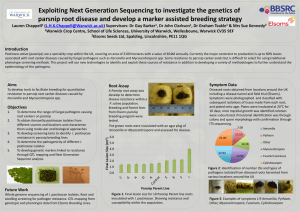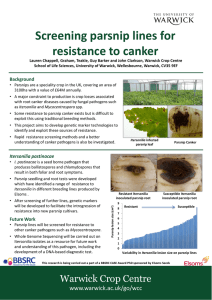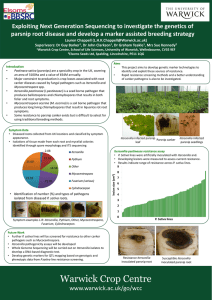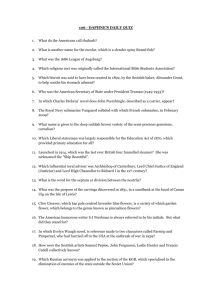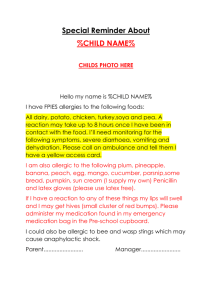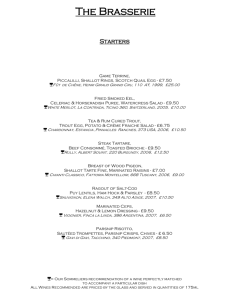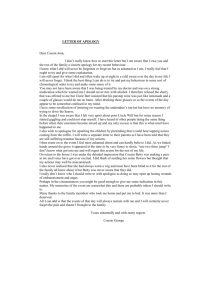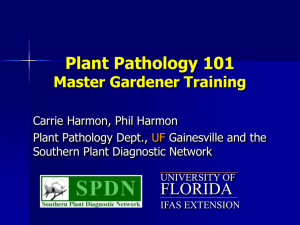– Parsnip Itersonilia looking for solutions?
advertisement
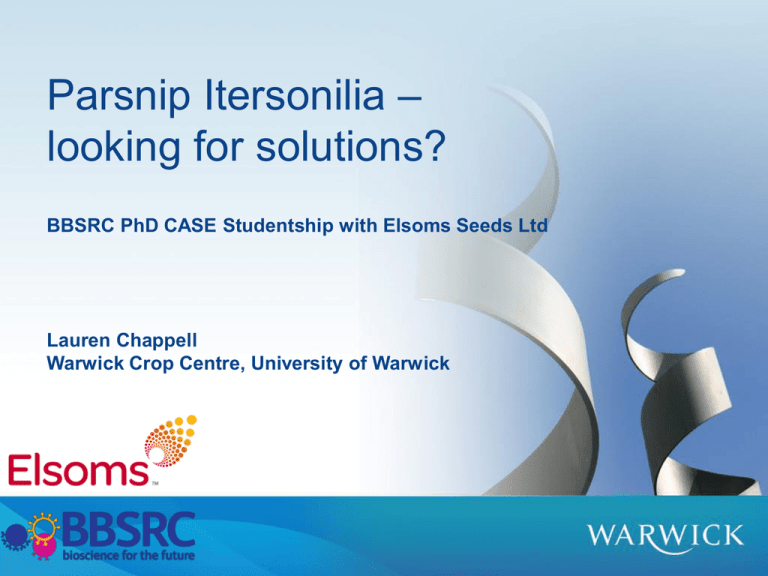
Parsnip Itersonilia – looking for solutions? BBSRC PhD CASE Studentship with Elsoms Seeds Ltd Lauren Chappell Warwick Crop Centre, University of Warwick Identifying the problem • Parsnips are a speciality Umbelliferous crop within the UK. • Cover area of 3,100ha. • Economic value of £64M annually. • Crop losses primarily due to cankers. How to solve the problem? • Cankers have been identified as the primary cause of Parsnip losses. • Pathogens responsible for causing lesions identified. • Carry out high quality research into the epidemiology of the pathogens. • Improve breeding using molecular techniques. Itersonilia • Three species of Itersonilia: – Itersonilia pyriformis – Itersonilia perplexans – Itersonilia pastinacae Itersonilia pastinacae • Seed-borne pathogen • Foliar Symptoms – Necrotic lesions on leaves surrounded by a yellow halo. • Root Symptoms – Black cankers on shoulder/crown of root. How do we know Itersonilia’s the problem? • Identification of the disease in the field. • Isolation of the pathogen from infected leaf/root material. • Pathogens are cultured in the lab. • Cultures then used to reinfect parsnip material – Koch’s postulates. Research • What we have: – Parsnip Transcriptome – Itersonilia Genome • What we need: – Phenotypic (observable) data – Genotypic data • Combining these data types for QTL mapping Marker Technology • Traditional Parsnip breeding methods can take up to 18yrs. • Using marker technology can halve this time. • The first stage is screening Parsnip line for resistance and susceptibility to cankers: – Parsnip lines were screened. – Resistance and susceptibility were assessed. Resistance Screening Results lesion size (cm2) Resistance 9 8 7 6 5 4 3 2 1 0 Susceptibility Parsnip lines Future Work • Further work into the pathogens causing cankers and lesions • Further resistance assays on parsnip lines • Assembly of genetic maps • Identification of markers linked to QTLs Acknowledgements Mrs. Sue Kennedy Dr. Adrian Dunford Dr. Richard Tudor Dr. John Clarkson Dr. Guy Barker Dr. Graham Teakle
